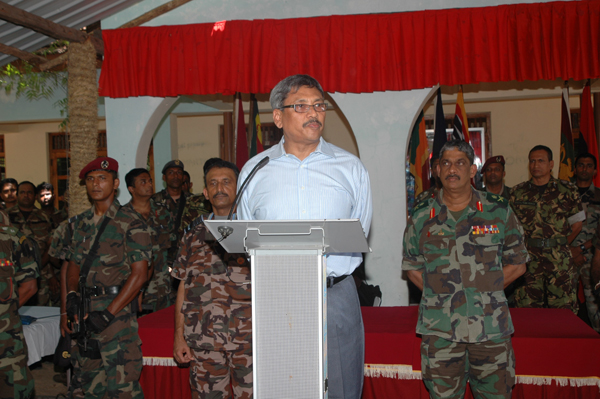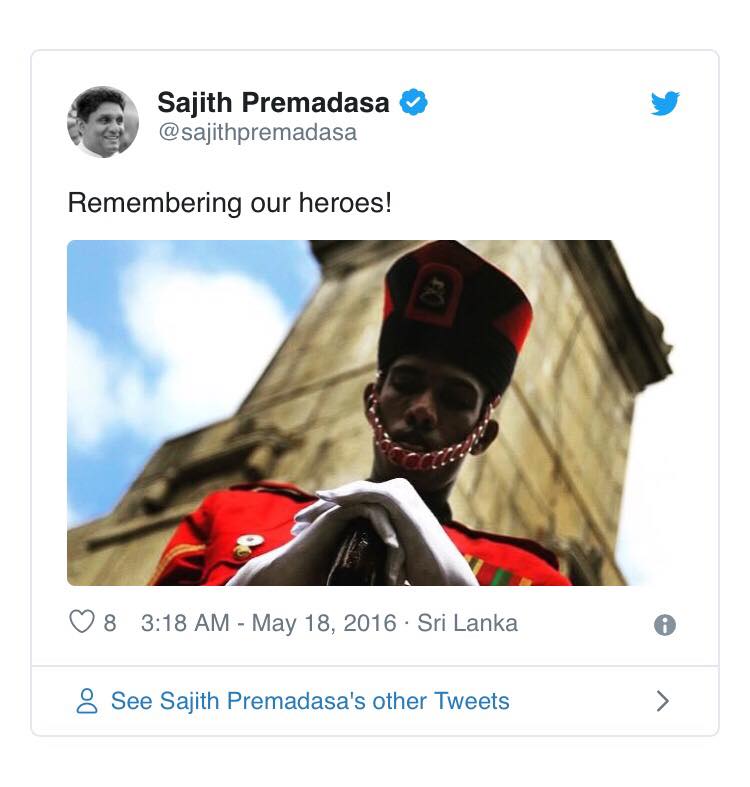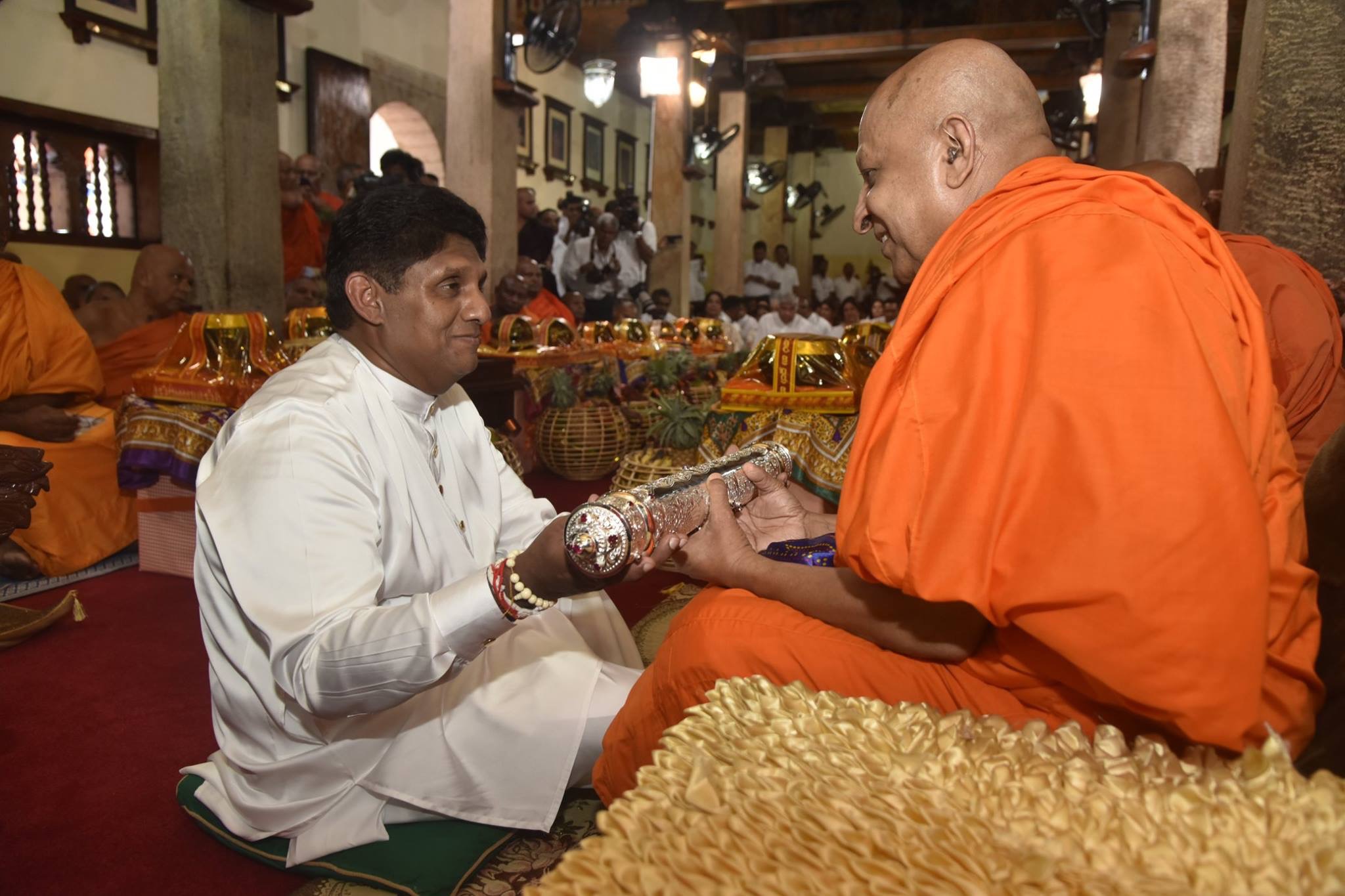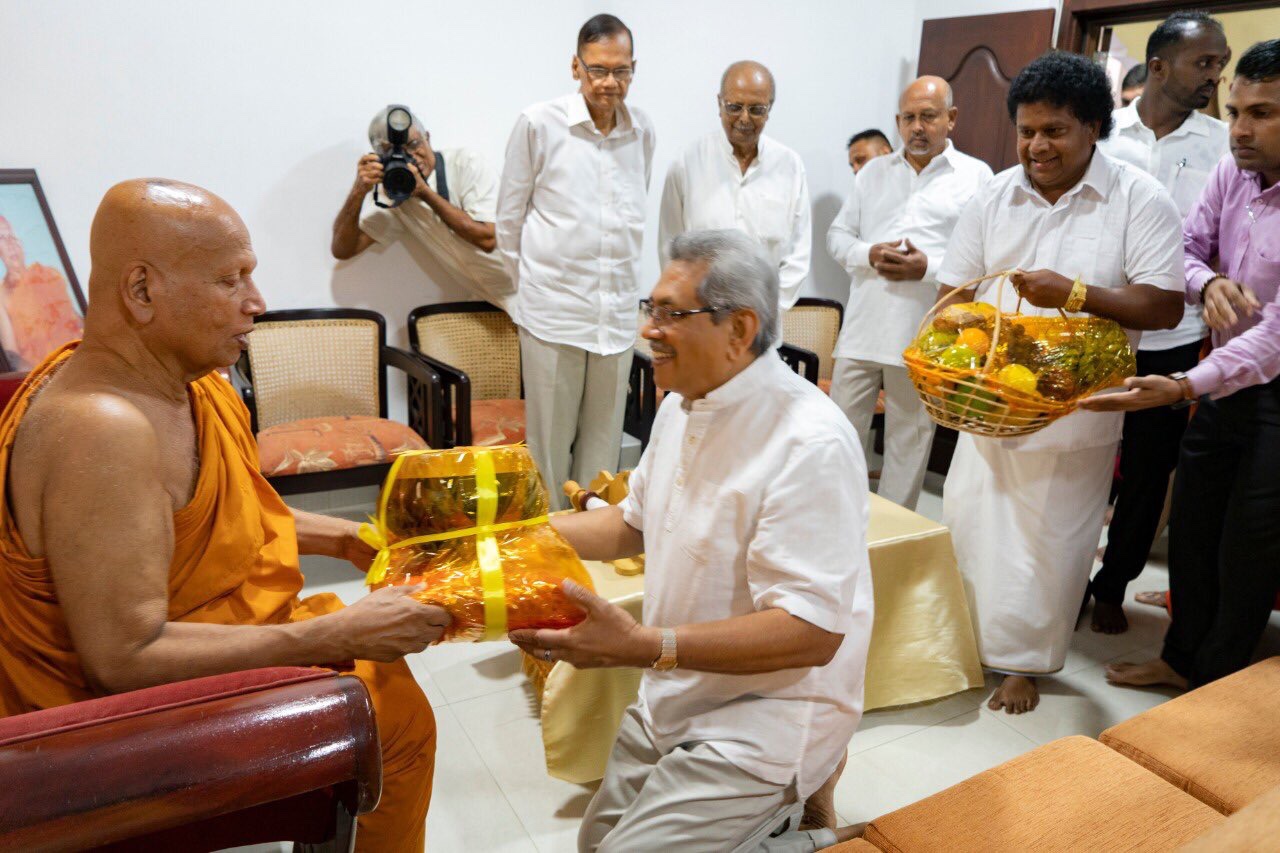Sri Lanka's upcoming presidential election may bring a new face to power, but concerns remain from Tamils on the island and around the world that their plight may remain unchanged.

New Democratic Front (NDF) candidate, Sajith Premadasa and Sri Lanka Podujana Peramuna (SLPP) candidate, Gotabaya Rajapaksa, launched their election campaigns last week with both actively competing for Sinhala nationalist votes.
Gotabaya, Sri Lanka's former Defence Secretary and accused war criminal, who oversaw the military offensive during the final phase of the armed conflict, has continuously rejected the United Nations Human Rights Council (UNHRC) resolution on accountability for mass atrocities.

Gotabaya addressing troops in 2009
Gotabaya, who previously said he watched Mullivaikkal with “a quiet sense of joy” told reporters this week that he “can’t recognise what they have signed". He has vowed to reject the resolution which mandates a hybrid judicial mechanism with foreign judges and lawyers to prosecute those accused of committing mass atrocities during the armed conflict. He told reporters,
“We’re an independent country, where we can follow (the law) without foreign appointed people producing documents without even coming here.”
However, his rival Sajith, has shown little difference in policy when it comes to issues of accountability. Sajith has also repeatedly opposed foreign intervention, arguing that Sri Lankan soldiers had sacrificed their lives deserved the respect of the entire country and should not be subjected to any international investigation into war crimes.

Sajith remembering war heroes on Tamil Genocide Day
In 2015, Sajith called the signing of a Memorandum of Understanding with General Secretary of the UN Ban Ki-Moon which promised to permit an international investigation as the “biggest betrayal of security forces of this nation.”
“Our enemies try to mislead people by talking of a hybrid court. There is no such thing. We are not going to undermine the supremacy of the judiciary of our country.”
Sajith’s inaugural rally in Colombo saw hundreds of supporters flock to Galle Face Green where he announced that Sarath Fonseka will be entrusted with the country's national security. Fonseka stands accused of overseeing the bombing of hospitals, the execution and torture of surrendees and disappeared civilians amongst a litany of human rights abuses against Tamil civilians and militants in 2009. The potential appointment of Fonseka highlights the complete disregard for the concerns of the Tamils, particularly the families of the disappeared who have been protesting for over 970 days, demanding to know the fate of their loved ones who either surrendered or disappeared.
Both front runners are vying for support from the Sinhala Buddhist majority and have used the Easter Sunday attacks to invoke a sense of nationalism. In his speech at Galle Face Green, Sajith told the crowd: "I will not allow any form of terrorism. We will eliminate all forms of terrorism." Gotabaya, a favourite among Sri Lanka’s Sinhala Buddhist community announced that he would run for presidency just days after the Easter Sunday attacks, claiming he would rebuild Sri Lanka’s intelligence network - the same network that he used to launch the 2009 military offensive.
Both candidates have also extensively paid utmost importance to Sinhala Buddhism. Before launching his campaign, Sajith visited temples to be blessed by Buddhist monks who hold a large sway over Buddhist voters. Gotabaya has also received blessings from Buddhist monks since announcing that he will contest the November 16 presidential poll.
 Sajith receiving an award from Buddhist monk earlier this year
Sajith receiving an award from Buddhist monk earlier this year

Gotabaya receiving blessings at Bellanwila Raja Maha Vihara
Looking forward, many Tamils remain sceptical that either candidate fulfils Tamil hopes. Just this week, an SLPP member said that their candidate, Gotabaya, would not even look at the demands outlined by Tamil political parties.
Both candidates have repeatedly dismissed the need for foreign intervention into domestic affairs, but this is not new in Sri Lanka. While the election of Sirisena in 2015 spread optimism among the international community, the Tamils remained cautious. Though current president Sirisena's government initially signalled its intention to open the island to an accountability mechanism that had foreign involvement, senior leaders including Sirisena himself, still vehemently opposed the idea of any foreign inquiries into wartime abuses. The current presidential candidates might be new faces from different political parties, but their propagation of Sinhala Buddhist nationalism and continued stand which denies justice for victims of mass atrocities shows that many structures in Sri Lanka remain very much the same.
We need your support
Sri Lanka is one of the most dangerous places in the world to be a journalist. Tamil journalists are particularly at threat, with at least 41 media workers known to have been killed by the Sri Lankan state or its paramilitaries during and after the armed conflict.
Despite the risks, our team on the ground remain committed to providing detailed and accurate reporting of developments in the Tamil homeland, across the island and around the world, as well as providing expert analysis and insight from the Tamil point of view
We need your support in keeping our journalism going. Support our work today.
For more ways to donate visit https://donate.tamilguardian.com.

